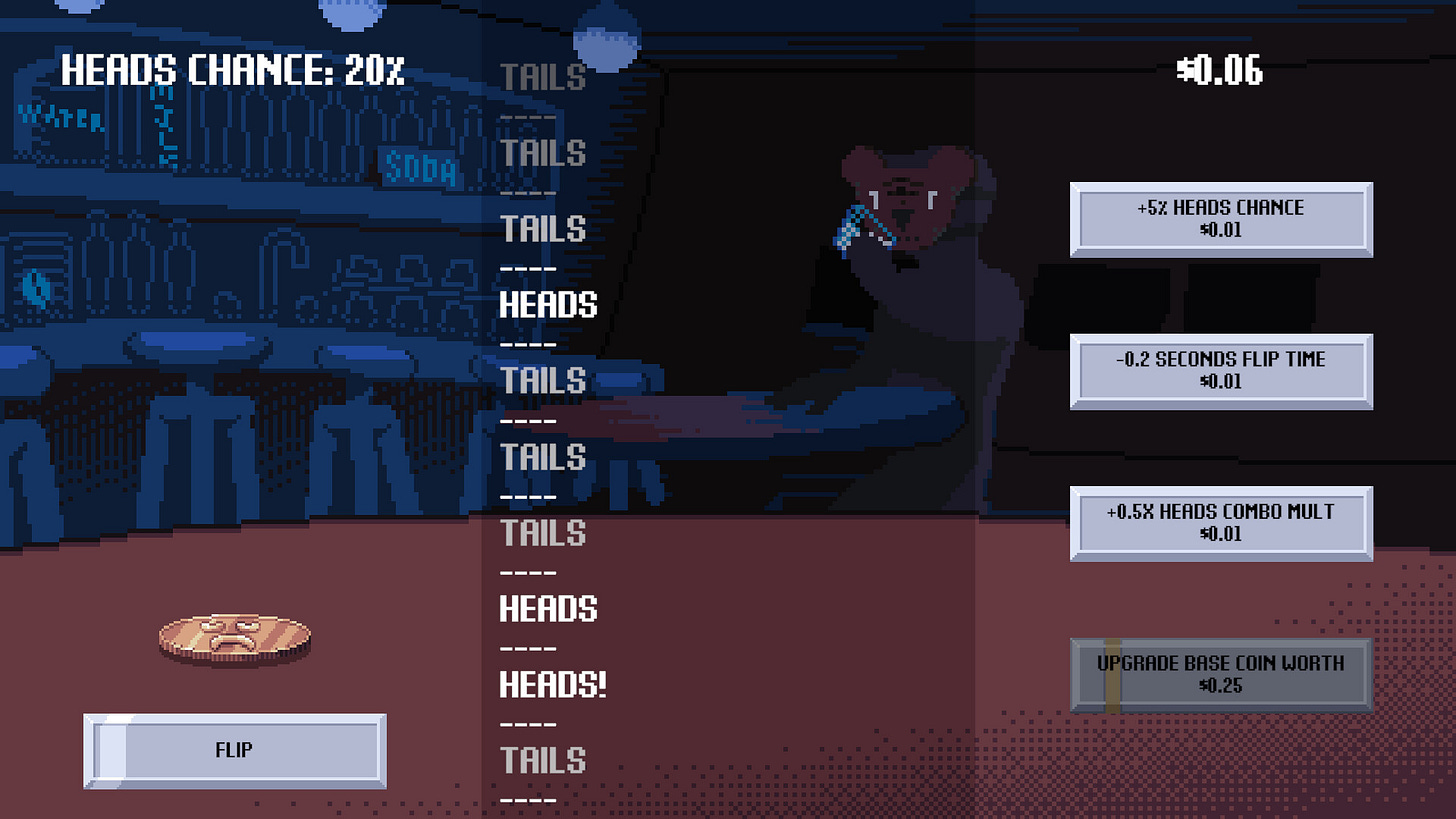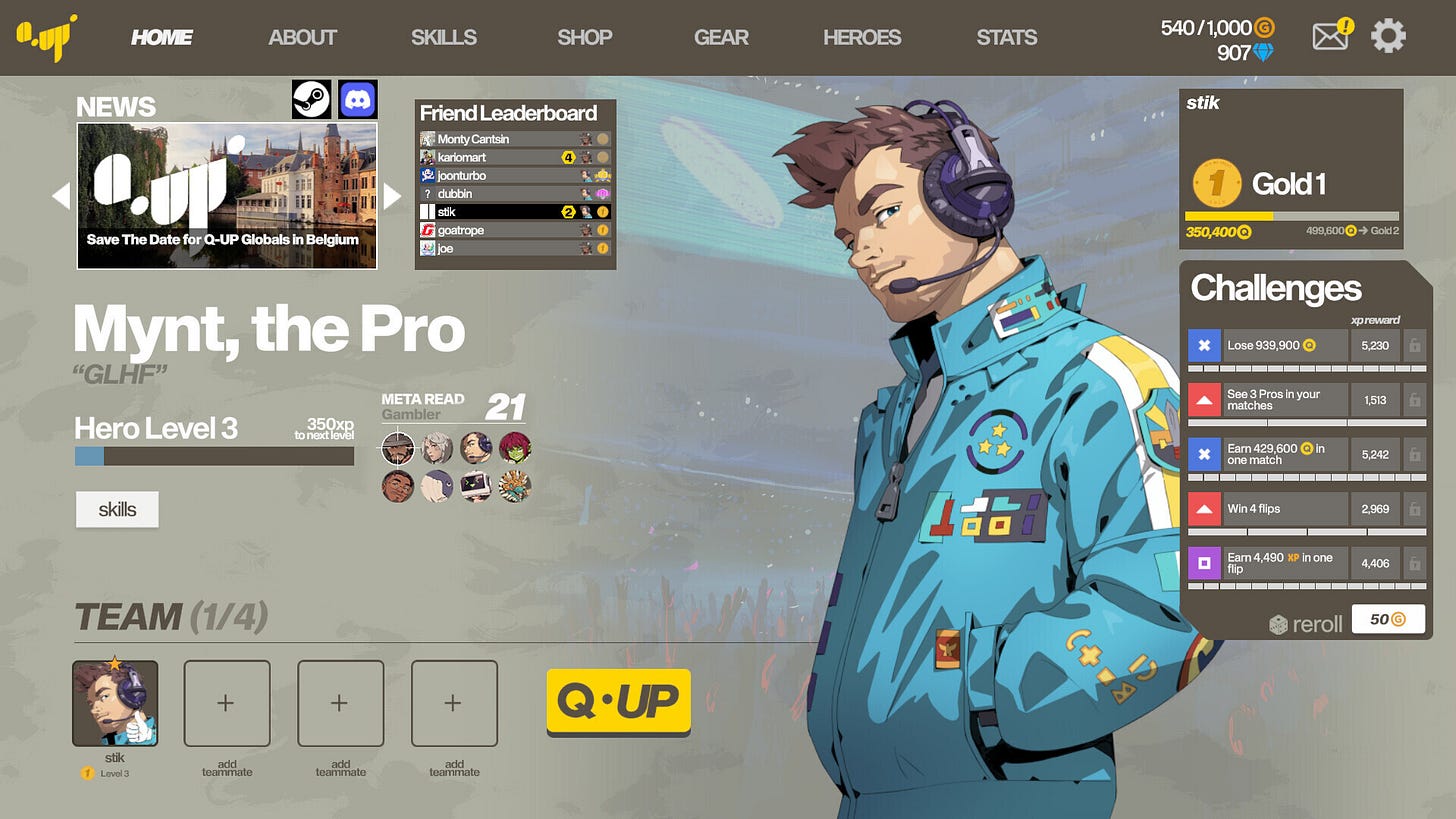Good morning. Today I have a few articles and some games to recommend.
Let’s get into it…
Everything is television: I was surprised to learn that Netflix has 36,000 hidden microgenres. Among them is “casual viewing” which includes shows “made to half-watch while doing laundry.”
The return of fun: Roy Price argues that many recent movies are failing at the box office because they aren’t fun enough. “If you’re not fun, you’d better be a masterpiece, and that’s a bad bet.”
The risk of dismissing AI content: Doug Shapiro says that media companies who fail to continually update their definition of quality are at risk of being disrupted. “Dismissing all AI content as slop smacks of cultural elitism and applies a value judgment about what is and what isn’t ‘quality.’ I think this is a mistake.”
What comes after postmodernism? Alex Danco says it’s the prediction era. “Prediction helps us break free from postmodern malaise, and gives us a new purpose in the world: we create order in the universe by contributing information.”
Is the games market reaching a point of over-saturation? Are wishlists still a useful metric on Steam?
My very dear friends, and the best music writers around, recently launched a music recommendation newsletter on Substack called
, that you should absolutely subscribe to. I was inspired by them to share some of my own game recommendations with you. Here are a couple of games that have been on my radar this past week that I think you should play.
First, Unfair Flips:
The start menu for Unfair Flips ($1.99, 741 reviews, 92% positive) contains a single button labeled “FLIP”. Click this button and the bronze coin in front of you immediately flicks into the air. As the coin lands, the game’s logo fades away to reveal what seems to be a wojak wearing a bear mask sitting in an empty bar sipping a cocktail. If you’re lucky enough to have your first coin flip land on heads, you’ll hear the solitary twang of a midi guitar note ring out and receive a $0.01 reward. A scrolling text box then takes over the middle of the screen logging all of your subsequent flips. Some additional text within this box explains that, in order to win, you must get 10 heads in a row. The text continues: “This could happen immediately. Or it could happen never. This is the entire game.” The twist is, you start the game with just a 20% chance of the coin landing on heads. With these odds, if my math is correct, you could expect to succeed once in every 9.8 million tries.
Thankfully, you have some upgrades to tip the scales in your favor. These include: increase the base value of the coin, increase the multiplier for money earned from heads combos, decrease the time it takes for the coin to flip (essential), and most importantly, increase the chances that the coin lands on heads. Unfair Flips is a game filled with all the highs and lows of much more mechanically or narratively dense games, but with the drama distilled to the click of a single button.
My next recommendation is Q-UP:
Q-UP (demo available on Steam) is the perfect counterpart to Unfair Flips, the tails to its heads. Q-UP, like Unfair Flips, is a coin flipping game played mostly with one button. You click “Q-UP” on the main menu, the game’s equivalent of a “ready up” button, which initiates a fake matchmaking loading screen (the game is single player). After a few seconds you’re quickly met with a large coin sitting in a futuristic airplane hangar while an atmospheric d&b soundtrack kicks in. Get three coin flips to land on your team’s side and you win the match. To be clear, none of these turns are actually “played” by the player. In fact, as a player you’re not doing much of anything at all. Each sequence is triggered automatically like the turns in an auto battler, and the only time you’ll click again after starting a match is hitting “OK” on a very persistent level up screen.
Q-UP is extremely self-aware and regularly breaks the fourth wall in the style of Stanley Parable ($24.99, 22K reviews, 94% positive) or Getting Over It with Bennett Foddy ($7.99, 39K reviews, 84% positive). Playing the game reveals meta commentary about the game itself. Put another way, Q-UP is to live service games as Cabin In The Woods is to horror movies.
Q-UP was developed in part by Frank Lantz, creator of the incremental game Universal Paperclips and the Founding Chair of the NYU Game Center. Lantz describes Q-Up as the “spiritual sequel to Universal Paperclips, where the number you are making go up is your rating in the semi-fictional game at the heart of the game.”
As you play a few more matches you accrue resources and come to understand that just beneath the parody-laden surface, there’s a super compelling big-number strategy game. You subsequently spend most of your time in the dense skill tree or shop menus optimizing your buildout in order to increase resource payouts when winning, or in some cases, intentionally losing. One Steam review explains, “I lost some games and the numbers went up. I also won some games and the numbers went up.”
Q-UP is what I would call a deconstructed eSport, to reference the 2010s music subgenre deconstructed club. Deconstructed club involved artists using the tools of popular dance music to create experimental music not quite made for dancing. In more recent years, the sounds of deconstructed club have been re-constructed back into the club with artists like Charli xcx reaching mainstream popularity. Playing Q-UP, you experience a similar cycle—after a few matches you begin to lose yourself in the thrill of the coin flip. After many more matches you might even forget, for a moment, that the game is a spoof on anything at all.
And finally, some games coming out this week that I’m keeping an eye on:
Friendslop driving game RV There Yet (releases October 21st) has somehow racked up over 250K wishlists in the last two weeks with no apparent marketing effort.
Gamestonk Simulator: Gone Rogue (releases October 20th) is a riff on the job simulator specialty shop management formula popularized by Supermarket Simulator ($19.99, 29K reviews, 94% positive) and TCG Card Shop Simulator ($12.99, 29K reviews, 97% positive).
Thanks for reading and have a great week.



